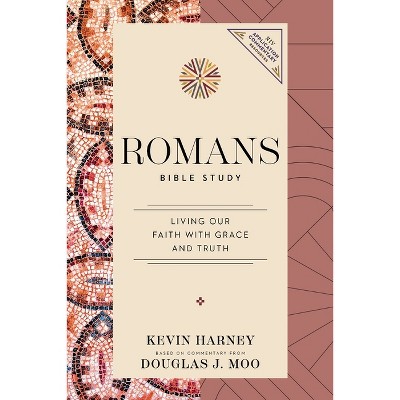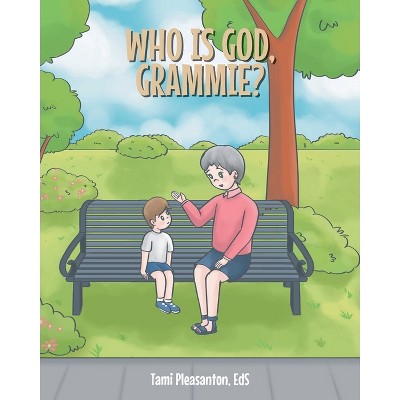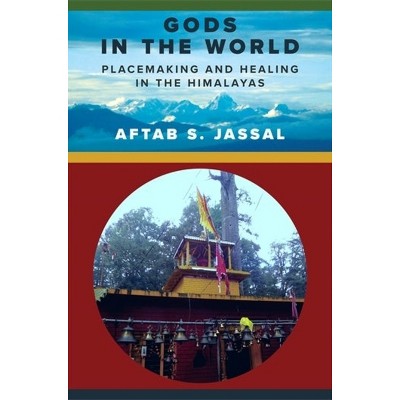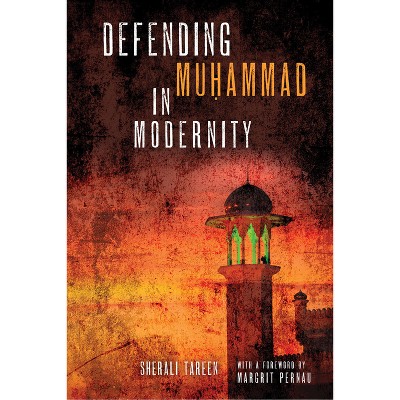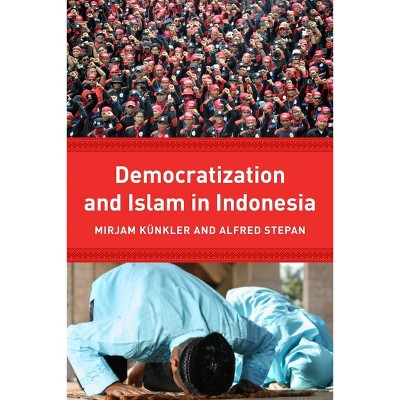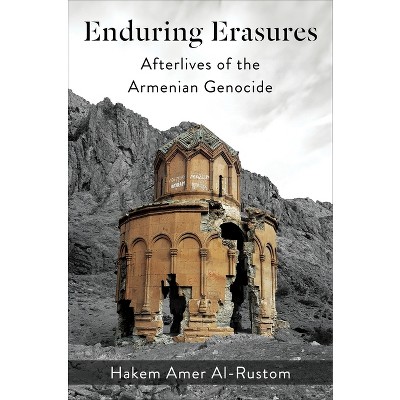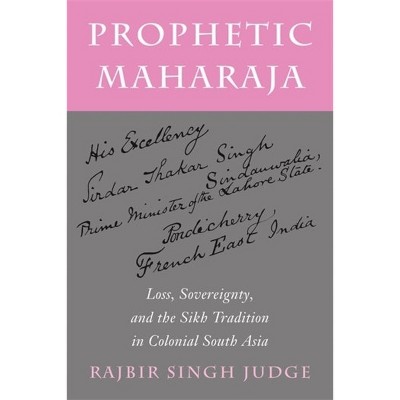Sponsored

Perilous Intimacies - (Religion, Culture, and Public Life) by Sherali Tareen
$140.00
In Stock
Eligible for registries and wish lists
Sponsored
About this item
Highlights
- Finalist, 2024 Award for Excellence in the Study of Religion: Textual Studies, American Academy of Religion Longlist, 2024 Karwaan Book Award, Karwaan: The Heritage Exploration Initiative Friendship--particularly interreligious friendship--offers both promise and peril.
- About the Author: SherAli Tareen is associate professor of religious studies at Franklin and Marshall College.
- 360 Pages
- Religion + Beliefs, Hinduism
- Series Name: Religion, Culture, and Public Life
Description
About the Book
SherAli Tareen explores how leading South Asian Muslim thinkers imagined and contested the boundaries of Hindu-Muslim friendship from the late eighteenth to the mid-twentieth centuries.Book Synopsis
Finalist, 2024 Award for Excellence in the Study of Religion: Textual Studies, American Academy of Religion
Longlist, 2024 Karwaan Book Award, Karwaan: The Heritage Exploration Initiative Friendship--particularly interreligious friendship--offers both promise and peril. After the end of Muslim political sovereignty in South Asia, how did Muslim scholars grapple with the possibilities and dangers of Hindu-Muslim friendship? How did they negotiate the incongruities between foundational texts and attitudes toward non-Muslims that were informed by the premodern context of Muslim empire and the realities of British colonialism, which rendered South Asian Muslims a political minority? In this groundbreaking book, SherAli Tareen explores how leading South Asian Muslim thinkers imagined and contested the boundaries of Hindu-Muslim friendship from the late eighteenth to the mid-twentieth centuries. He argues that often what was at stake in Muslim scholarly discourse and debates on Hindu-Muslim friendship were unresolved tensions and fissures over the place and meaning of Islam in the modern world. Perilous Intimacies considers a range of topics, including Muslim scholarly translations of Hinduism, Hindu-Muslim theological polemics, the question of interreligious friendship in the Qur'an, intra-Muslim debates on cow sacrifice, and debates on emulating Hindu customs and habits. Based on the close reading of an expansive and multifaceted archive of Arabic, Persian, and Urdu sources, this book illuminates the depth, complexity, and profound divisions of the Muslim intellectual traditions of South Asia. Perilous Intimacies also provides timely perspective on the historical roots of present-day Hindu-Muslim relations, considering how to overcome thorny legacies and open new horizons for interreligious friendship.Review Quotes
Perilous Intimacies arrives at a crucial moment when Muslim-Hindu relations have become a hotly contested field, particularly in light of the rise of Hindu right-wing politics in India. Provides essential insights into the complex intersections between law, religion, and politics in the colonial and postcolonial world, making it essential reading for legal scholars, historians, and social scientists interested in the interaction of these domains.-- "Islamic Law and Society"
Perilous Intimacies is a model for boundary-crossing and theoretically informed scholarship for those working in any discipline, South Asia or otherwise.--Elaine Fisher, author of Hindu Pluralism: Religion and the Public Sphere in Early Modern South India
A book of sweeping breadth and incredible depth, one worth reading (and rereading). Offers a detailed, pointed, sustained examination of theoretically complex topics like sovereignty, translation, and friendship. It is unique scholarship that deliberately and almost languidly submerges the reader within the South Asian Muslim matrix of writing, speeches, commentary, and history across several centuries.--Ilyse Morgenstein-Fuerst author of Indian Muslim Minorities and the 1857 Rebellion
A master class in how to open a dense intellectual archive to non-specialists. Although making imposingly erudite use of sources in Arabic, Persian, and Urdu, Tareen always approaches these sources with a light touch. Often funny, Perilous Intimacies humanizes its ulama, even as it pays scrupulous attention to the complexities of their texts.-- "Marginalia Review of Books"
It is intellectual, nuanced, and thought-provoking..an exemplary analysis of how a minority grapples with its identity in the context of diversity and threat of erasure (real or perceived) that will also be of interest to political sociologists of race/ethnicity, (de)colonization, and religion.-- "Contemporary Sociology"
One of the great virtues of the book is the author's use of the sources, some of them rarely mentioned in scholarly literature and certainly not to this extent and in such detail. [SherAli Tareen] deserves to be congratulated for providing the scholars of modern Muslim India with a treasure trove in which he surveyed and analyzed an important aspect of modern Indian Muslim history and thought.-- "American Journal of Islam and Society"
SherAli Tareen's Perilous Intimacies is a masterfully crafted and methodologically ambitious intervention into the intellectual history of South Asian Islam. Through careful readings of major Muslim thinkers, Tareen reconstructs a discursive archive where political rupture, theological boundary-making, and moral intimacy are deeply intertwined.-- "Bloomsbury Pakistan"
A thought-provoking book with a deep dive into the intellectual history of Islam in South Asia. Through a close reading of texts by Muslim intellectuals from the eighteenth to the early twentieth centuries. SherAli Tareen argues that a political sovereignty of Empire was transformed into the sovereignty and distinction of the self.--Abdulkader Tayob, author of Religion in Modern Islamic Discourse
SherAli Tareen's Perilous Intimacies skillfully traverses the landscape of Eurocentrism and the hidden epistemologies of liberalism embedded in much of Indological discourse. He investigates the politics of friendship not as a demonstration of an empathetic enlargement of individual Muslims and Hindus, nor as an example of the porous nature of the boundaries that bind and divide Hindus and Muslims, but rather as a different set of possibilities arising from a question that sidesteps the Indological paradigm: how did Muslims theorize friendship with Hindus in the colonial moment, in the aftermath of losing imperial sovereignty?--Salman Sayyid, author of Recalling the Caliphate: Decolonization and World Order
The recent global rise in authoritarianism and hyper-nationalism underscores the need for complex, nuanced histories that help us understand how communities and their boundaries have been constructed over time. Perilous Intimacies does a brilliant job of examining complex theological debates among Muslim scholars of the subcontinent and also reflecting upon their wider significance.--Supriya Gandhi author of The Emperor Who Never Was: Dara Shukoh in Mughal India
In this path breaking work on Muslim intellectual thought on the question of Hindu-Muslim friendship, Tareen shows the transformation of the colonial public sphere through the power relations controlled by the state. A panoramic view of Muslim intellectual history, political theology and social ontology, this book combines historical explication with a lucid analysis of diverse ideas and processes that shaped and affected social relations in the early and late colonial period...A landmark contribution to scholarship.-- "Economic & Political Weekly"
This magisterial monograph brings razor-sharp focus to the analysis of Islamic discourses on Hindu-Muslim friendship in modern South Asia. Perilous Intimacies models close reading of and unrelenting listening to a range of heretofore neglected sources.-- "Journal of Islamic Studies"
Perilous Intimacies is terrific. Tareen is a precise and nuanced thinker and leans into (rather than shying away from) slippery concepts that are often presented by other analysts as uninterrogated, naturalized binaries. This book will be an excellent resource for scholars thinking about tradition and reform, South Asian Islamic history, secular modernity, and political theology.--Anna Bigelow, editor of Islam through Objects
Intra-Muslim debate outweighs external issues and events in considering modern-day Hindu-Muslim friendship. In lapidary prose, SherAli Tareen explores how British rule redefined the parameters but not the particulars of Muslim-Hindu relations in the Asian subcontinent. His is an argument at once bold, eloquent, and compelling, essential for students of critical theory as well as global history.--Bruce B. Lawrence, author of Islamicate Cosmopolitan Spirit
Tareen's book is a learned and thought-provoking contribution to the question of whether there can be friendship between Hindu and Muslim communities in South Asia. It draws intriguingly on Derrida on the fragility of political friendship. For anyone thinking seriously about the problem of secularism and sovereign power, this book is strongly recommended.--Talal Asad, author of Secular Translations: Nation-State, Modern Self, and Calculative Reason
This innovative study brings much depth and insight to our understanding of how South Asian Muslim scholars have viewed friendship across religious boundaries. It illuminates new facets of Islamic thought in colonial India and authoritatively introduces styles of argumentation long characteristic of Muslim scholarly culture. Tareen's book is important, timely, and accessible, and it deserves to be read widely.--Muhammad Qasim Zaman, author of Islam in Pakistan: A History
About the Author
SherAli Tareen is associate professor of religious studies at Franklin and Marshall College. He is the author of Defending Muḥammad in Modernity (2020).
Faisal Devji is professor of Indian history and fellow of St Antony's College at the University of Oxford, where he is also the director of the Asian Studies Centre.Dimensions (Overall): 9.0 Inches (H) x 6.0 Inches (W) x .94 Inches (D)
Weight: 1.54 Pounds
Suggested Age: 22 Years and Up
Number of Pages: 360
Genre: Religion + Beliefs
Sub-Genre: Hinduism
Series Title: Religion, Culture, and Public Life
Publisher: Columbia University Press
Theme: Theology
Format: Hardcover
Author: Sherali Tareen
Language: English
Street Date: September 19, 2023
TCIN: 1002216035
UPC: 9780231210300
Item Number (DPCI): 247-32-0162
Origin: Made in the USA or Imported
If the item details aren’t accurate or complete, we want to know about it.
Shipping details
Estimated ship dimensions: 0.94 inches length x 6 inches width x 9 inches height
Estimated ship weight: 1.54 pounds
We regret that this item cannot be shipped to PO Boxes.
This item cannot be shipped to the following locations: American Samoa (see also separate entry under AS), Guam (see also separate entry under GU), Northern Mariana Islands, Puerto Rico (see also separate entry under PR), United States Minor Outlying Islands, Virgin Islands, U.S., APO/FPO
Return details
This item can be returned to any Target store or Target.com.
This item must be returned within 90 days of the date it was purchased in store, shipped, delivered by a Shipt shopper, or made ready for pickup.
See the return policy for complete information.
Frequently bought together
Trending Non-Fiction

$4.59
MSRP $7.99
Save $5 when you spend $20 on select books
4.8 out of 5 stars with 123 ratings

$6.20
MSRP $10.95
Save $5 when you spend $20 on select books
4.8 out of 5 stars with 33 ratings

$7.09
MSRP $9.99
Save $5 when you spend $20 on select books
4.9 out of 5 stars with 46 ratings

